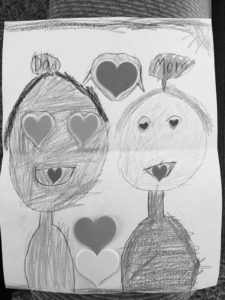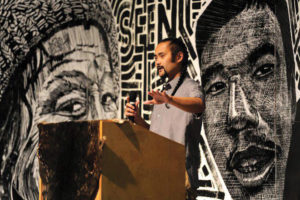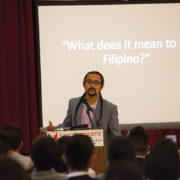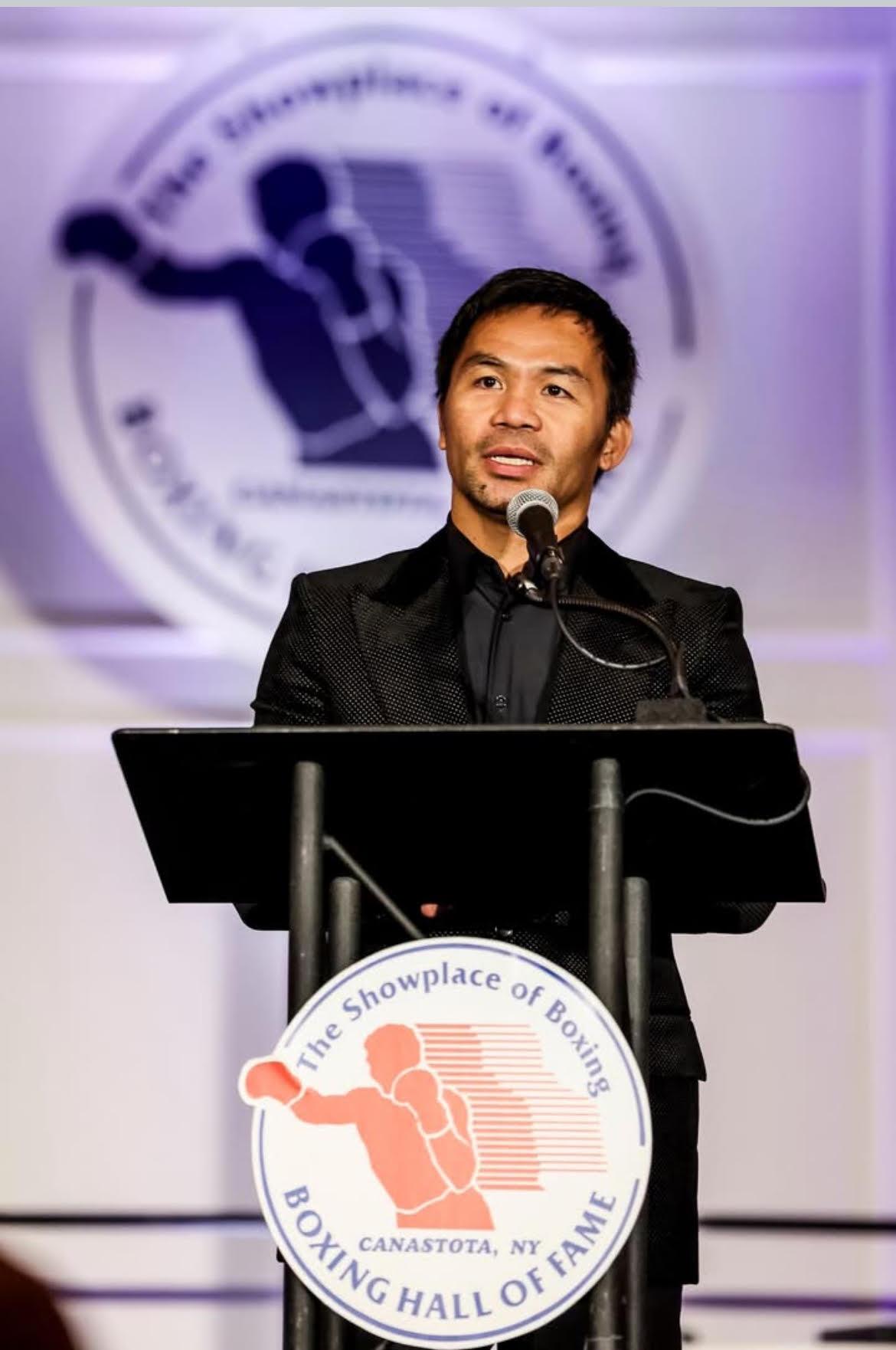EJ R. David’s “We Have Not Stopped Trembling Yet: Letters to my Filipino-Athabascan Family” brings more light to racism in America
IT is a fact that racism has existed (and is still existing) for as long as we can all remember. Especially with the current administration and the crackdown on immigration, the discrimination of minorities in the United States continues to plague communities. As an immigrant to this country at the age of 37, I personally have experienced discrimination a couple of times because I am not white.
Dr. EJ R. David’s “We Have Not Stopped Trembling Y et: Letters to my Filipino-Athabascan Family” touches on the subject of racism and discrimination in a very personal way. The book, which was released earlier this year, consists of David’s letters to his family. Born and raised in the Philippines, David moved to Barrow (Utkiagvik), Alaska when he was 14 years old. He wrote the book after his best friend, Pamiuq, who is Inupiaq and was only 36 years old that time, was shot and killed by the police in their hometown in 2016. Pamiuq left behind a wife and three young children, prompting David to reflect on his own death and how to prepare his family for it.
 David, who is also currently an Associate Professor of Psychology at the University of Alaska, Anchorage and obtained his doctoral degree in Clinical Community Psychology from the University of Illinois. He lives in Anchorage with his Koyukon Athabascan wife and their three Filibascan children — sons Malakas and Kaluguran, and daughter Kalayaan. He is sharing these letters to the world now so we can understand the impact of the continued discrimination of people of color, as well the subject of Filipino identity and colonial mentality.
David, who is also currently an Associate Professor of Psychology at the University of Alaska, Anchorage and obtained his doctoral degree in Clinical Community Psychology from the University of Illinois. He lives in Anchorage with his Koyukon Athabascan wife and their three Filibascan children — sons Malakas and Kaluguran, and daughter Kalayaan. He is sharing these letters to the world now so we can understand the impact of the continued discrimination of people of color, as well the subject of Filipino identity and colonial mentality.
Asian Journal had set up an e-mail interview with David (Editor’s note: Interview has been edited for length and clarity).
AJ: With the death of your best friend Pamiuq, and how you are treated and view because of race and skin color, do you feel that America — which supposedly presented itself to the world as the land of the free, has in fact, reneged on its promises to treat its people, especially its citizens, with equality?
David: I bought into that lie. But my own experiences in America – plus my growing understanding of how the U.S. has treated different kinds of Peoples throughout its history – allowed me to see through that lie.

I think America has only been the “Land of the Free” for some people – white, Christian people mostly. But for peoples of color, for indigenous peoples, for non-Christians, and for immigrants – America has never been truly the “Land of the Free.” For the indigenous peoples of these lands, for the black folks who were enslaved – this has never been the “Land of the Free.”
And as a Filipino person, I learned so much from the hard work of our Native American and black relatives and saw so many connections between their experiences and the Filipino experience. And I think that’s one of the more important points I want to make in this book: Filipinos need to see our connections with native peoples, with black folks, and with other oppressed groups so that we can work in solidarity and in harmony with each other to break down the oppressive systems that have been keeping us down – even killing us – for generations.
AJ: What is/are the message/s you want to convey with this book?
David: There’s so much in this book. But here are three general messages:
A. We as Filipinos need to see how our experiences and struggles are similar to other oppressed groups like Native Americans, African Americans, and Latina/o Americans. Through this, then I think we will see how we are in the intersections of colonialism, immigration, and racism – issues that have been perpetually important globally. In turn, we can then be a part of the national and global conversations on these issues – better informing how to think through them and maybe help come up with better solutions for them. Filipinos have plenty to offer when it comes to colonialism, racism, and immigration, so we need to be part of the conversations.
B. We need to talk to each other – especially with our families including our children – about racism, xenophobia, sexism, homophobia, and other forms of oppression. Anti-oppression work and social justice knowledge needs to become as important, normative, foundational, and valued in our families and communities as reading, writing, and math.
C. Third, whenever I talk about the effects of historical (e.g., colonialism) and modern day oppression, people always say something like “you paint people as victims who have no control over their lives.”
So it needs to be clarified that I never have doubted peoples’ resilience and ability to control their lives; it is colonialism and oppression that does this! Colonialism and oppression inferiorizes people! Colonialism and oppression regards people as incapable! Nevertheless, historically oppressed peoples have continued to survive despite systematic oppression! People – our people – have proven our resiliency over and over again, for generations. So resiliency is not the issue; oppression is. We don’t need to keep proving how resilient we are; we need the world to stop oppressing us.
AJ: What is your message to the Fil-Am community?
David: In addition to the three general messages I mentioned earlier, for the Fil-Am community I want to highlight five things (which are the five overarching themes of the first 5 letters in the book):
• Kamalayan – Let’s work toward developing a critical understanding of our history and modern day realities.
• Kapwa – Let’s see our connections with other Filipinos and other oppressed peoples, and know that we are not alone in our struggles.
• Lakas – Let’s strongly and bravely resist the various forms of oppression that we and our kapwa taoare subjected to.
• Kalayaan – Let’s free ourselves and not limit ourselves to the status quo, the standard operating procedures, the norms, the boundaries, and the stereotypes that this society imposes on us.
• Kaluguran – And as we strive toward all of these things, let’s always be driven by love. It’s ok to feel angry, devastated, depressed, even vengeful sometimes – those are all normal, appropriate, legitimate, and valid emotions to feel. But we need to work through them and not have our lives be driven by them.
“We Have Not Stopped Trembling Yet: Letters to my Filipino-Athabascan Family” is available through Amazon, Barnes and Noble, and other retailers, as well in e-book format. Please ask your bookstores if they can order you a copy.
* Dr. EJ R. David was the 2007 recipient of the American Psychological Association (APA) Society for the Psychological Study of Ethnic Minority Issues (Division 45) Distinguished Student Research Award “for his significant contribution in psychological research related to ethnic minority populations.”
In 2012, due to the impact of his work in only five years since obtaining his Ph.D., Dr. David was honored by the APA Minority Fellowship Program (MFP) with the Early Career Award in Research for Distinguished Contributions to the Field of Racial and Ethnic Minority Psychology, citing his “outstanding scientific contributions and the application of this knowledge toward the improved mental and physical well-being of people of color.”
In 2013, he was also chosen to receive the Asian American Psychological Association Early Career Award for Distinguished Contributions to Research. In 2014, he was honored by the Alaska Psychological Association with the “Cultural Humanitarian Award for Exemplary Service and Dedication to Diversity, and in 2015 he was inducted as a Fellow by the Asian American Psychological Association for “Unusual and Outstanding Contributions to Asian American Psychology.”







Oppression and racism is not confined to America.It is far far worse in other countries and nations. And people of all races knock over others to get here.it is a worldwide problem. Always has been and always will be.To focus on one country is truly idiotic and close minded. In America today to use this false narrative that all of America and true patriotic, sacrificing Americans are racist is absurd. The repeated terminology used is agenda based.(xenophobic,homophobic,etc.) Those words are repeated over and over through mainstream media outlets that come straight from the biggest oppressors of all. Media is a big big part of the problem and until that issue is realized and accepted in an open minded fashion your words will fall on deaf ears for those that realize the true source of the problem. I’m not disagreeing with you necessarily in total but before you spew out more false narratives and info you need to walk in the shoes for a day of most loving and giving Americans that has sacrificed and suffered so much at the hands of our corrupt, power hungry, money hungry government. We as non-immigrant Americans are only doing as our government allows. And that in itself is a blanket of oppression for all who live there. I do respect your opinion and I’m glad you can still actually say what is on your mind for now…Other countries??…well that is another story..and much more of an issue.